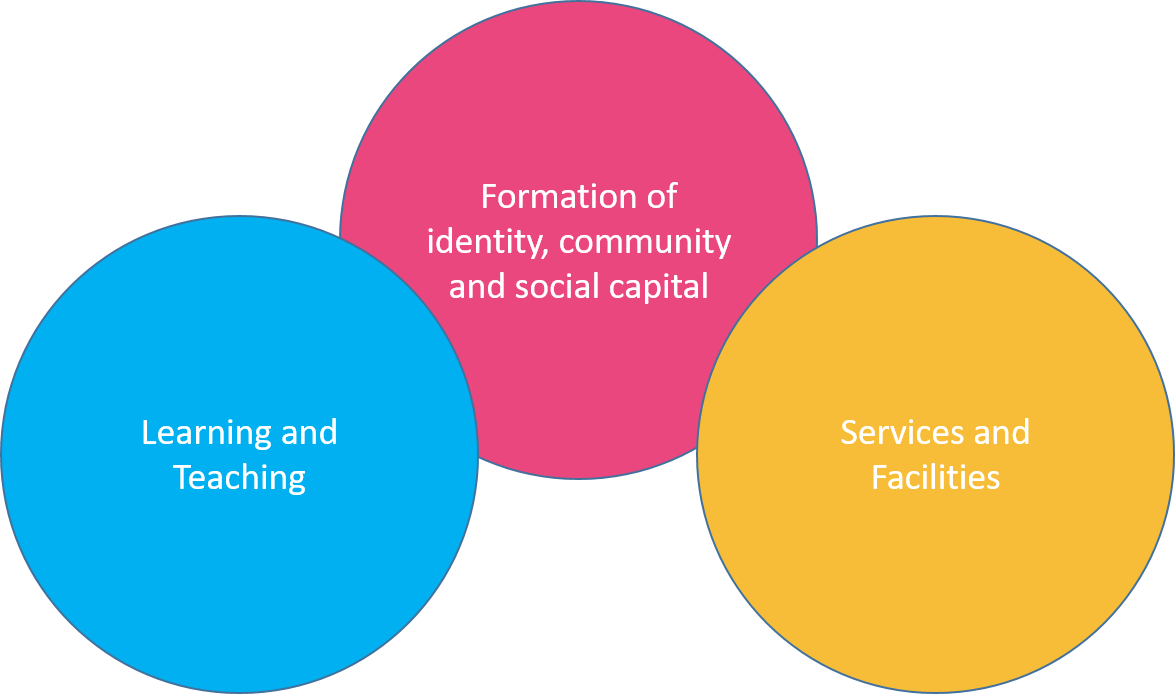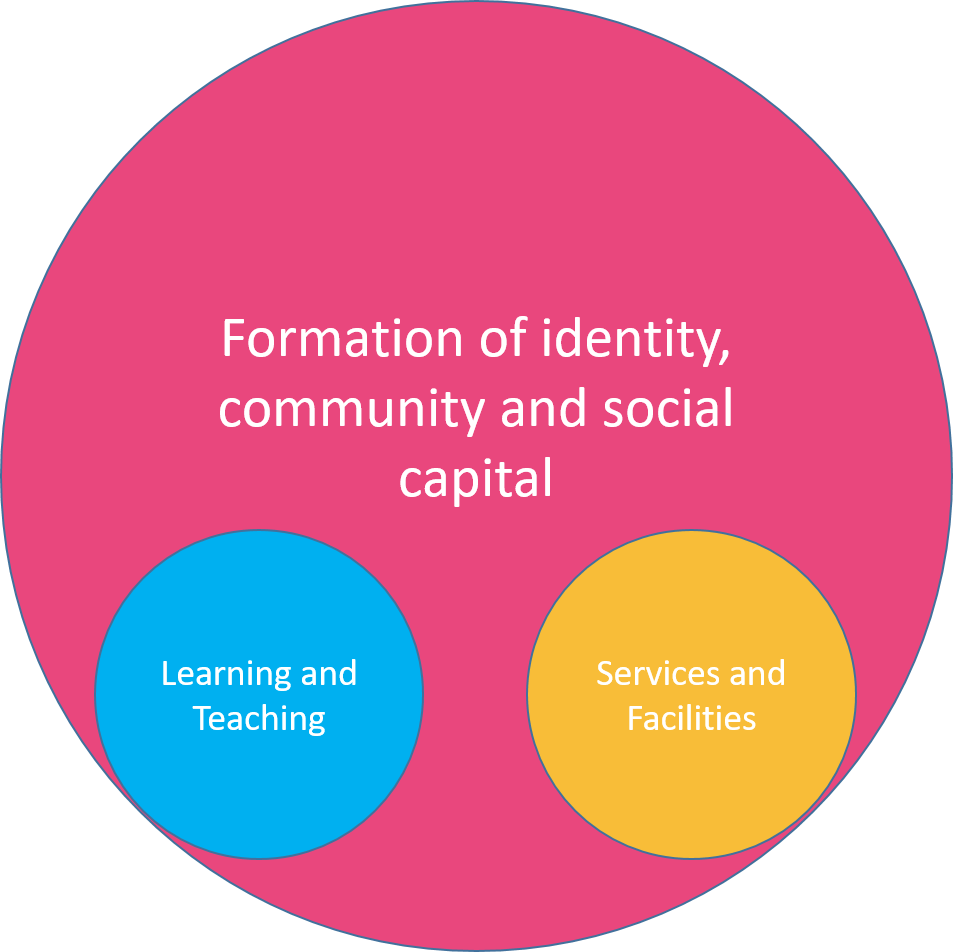If you search “university students” in google images, you will see thousands of photos of students gathered around laptops in campus cafes, hundreds of students filing into lecture theatres with coffees and pastries, packed dancefloors and student groups socializing together. They are for all intents and purposes photos that depict connection.
As the sector begins to turn its attention to the new academic year looming on the horizon, it’s difficult to imagine these same scenes in a socially distanced world. When you’re forced to add distance, you risk losing that social connection.
Conversation in Universities about what September might look like has not moved much beyond the logistics of campus facilities and how to deliver learning and teaching in a socially distanced world. And yet when we examine the constituent parts of the student experience, there’s a significant element that has not yet made its way to the forefront of discussions:

The formation of identity, community and social capital is the process we see happening in the google images of “university students”. It is what connection leads to. It is the element of the student experience that results in lots of students looking back at University as “the best years of their life”. It is where the inherent value of HE lies.
Key phases of the student life cycle fall into this category too: induction, transition to independent living, finding community in student groups, building social networks, relying on those social networks, the opportunities to try, and fail, and learn and build confidence, over and over again.
It is perhaps more accurate then to view HE’s constituent parts in a different formation. If the formation of identity, community and social capital is where the value of HE lies, then it is learning and teaching, and services and facilities, that need to help facilitate that. Instead of merely grappling with questions of how to deliver teaching and services online, the sector must consider how its socially distanced learning and teaching, and services and facilities enable the formation and fostering of identity, community and social capital for students.

Learning and teaching needs to facilitate learning communities, prioritizing connection over content. Students need to feel like they’re part of something, not receiving something. We’ll need to ensure September plans don’t overlook or exacerbate existing inequalities present in the student community, and assure ourselves we have the right expertise and student voices in those decision making process to ensure provision is accessible and equitable.
Services and facilities will need to have clear, concise and navigable signposting online. Support services will need to be prepared to meet even more demand with new and difficult topics like bereavement. Facilities will need to support student group activity to maintain provision for life outside of the “classroom” to fill in the wider student experience, and we’ll need to operate our physical and virtual spaces in a way that allows for serendipitous encounters that lead to golden opportunities.
So there’s a lot to think about. The question really is how do we make sure we get it right? We might want to use these 4 principles as starting point:
1. Communication
Trust students enough to communicate with them frequently, honestly, accessibly and transparently, even if you don’t know all the answers or haven’t made a decision yet. Your silence will sound like inaction or apathy.
2. Humanity
Stay grounded in the lives of students to see their humanity, and be vulnerable enough to show your own humanity to them. Nobody has been through any of this before, so we need to be compassionate towards each other.
3. Inclusion
When thinking about our socially distanced campuses, we have to start with the minority, and then think about the majority. In a world where we are so often driven by money and resource, if we only ever make decisions based on the ‘demand’, underrepresented groups will always be at the bottom of the priority list and we cannot let this continue.
4. Partnership
And finally, effective partnership with students’ unions has always been vital. But no more so than now. SUs experts at creating student communities and you are going to need them if you want to provide a student experience beyond online learning. But crucially, you will also need to allow them the space to challenge you if they’re concerned about your approach, and trust that there are doing so to help you get it right, not to make your lives difficult. Your decisions will work better for your University community if they’ve been involved in the decision making processes all the way through.
Eve Alcock is the President of the Students’ Union at the University of Bath, is passionate about higher education policy, women in leadership and student engagement. She has spoken at sector conferences on topics such as the TEF, Augar Review, student experience and online learning.
Read the full report:
Induction - Creating Socially Distanced Campuses and Education Project, Leadership Intelligence Report